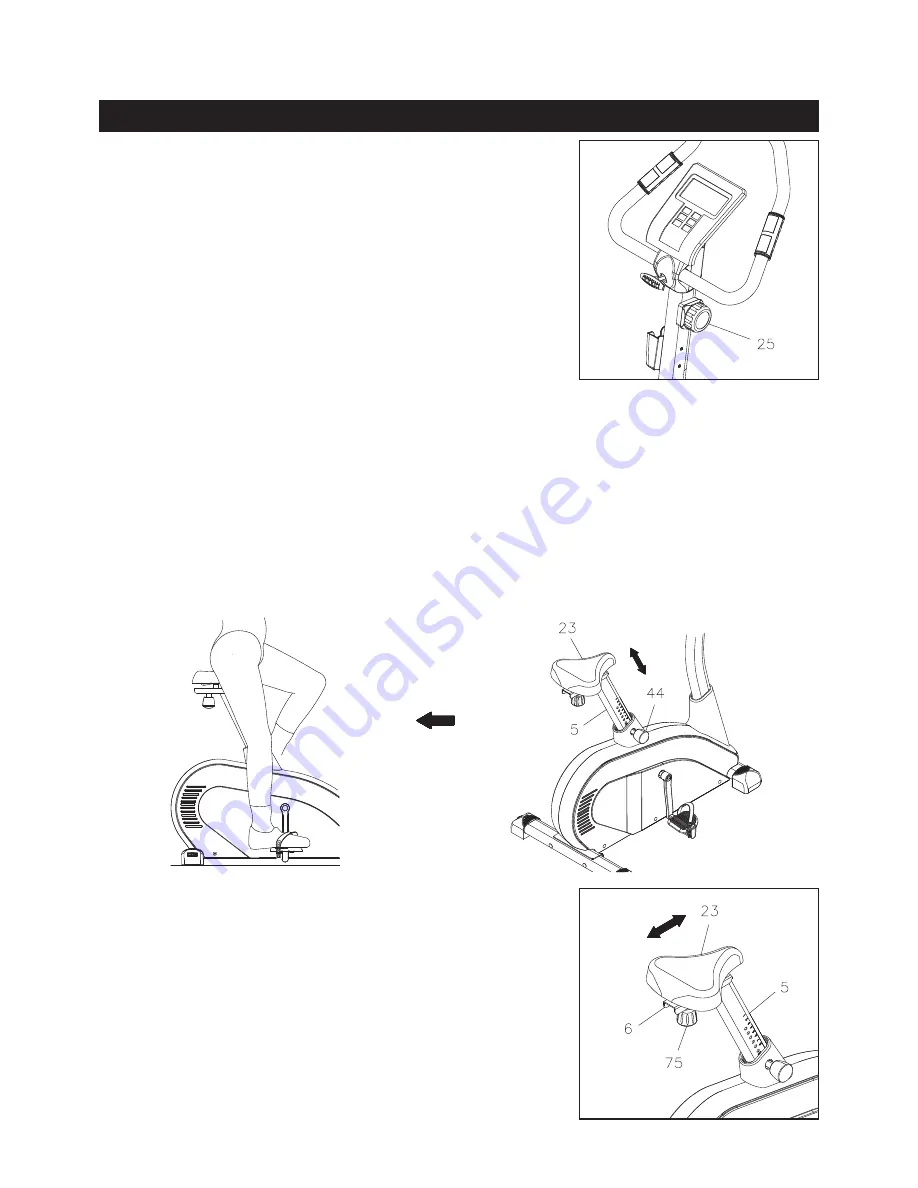
14
OPERATIONAL INSTRUCTIONS
SEAT HEIGHT ADJUSTMENT
Proper seat height is important for efficient exercise. To determine proper seat height, place your foot in the
toe cage of the pedal closest to the floor and mount the bike. Sit on the bike and move one of the pedals
to the down position. Your leg should be slightly bent and relaxed as shown.
FORWARD/AFT POSITION OF SEAT
Adjusting the
SEAT(23)
forward or backward helps you work on
different lower body muscle groups.
Loosen the
LOCKING KNOB(75),
slide the
SEAT(23)
to the desired
position, and secure with the
LOCKING KNOB(75).
NOTE:
The
LOCKING KNOB(75)
should be screwed in tight so that
the
SEAT SLIDER(6)
fits securely on the
SEAT POST(5).
If your leg is too straight or if your foot cannot touch the pedal when extended at the downstroke, you will
need to lower the seat. If your leg is bent too much, you will need to raise the seat. Loosen and pull the
ADJUSTMENT KNOB(44),
then lower or raise the
SEAT(23)
to the desired height, and secure with the
ADJUSTMENT KNOB(44).
Make all adjustments to seat height while off of the bike.
NOTE:
The pin of the
ADJUSTMENT KNOB(44)
must be inserted into one of the adjustment holes in the
SEAT POST(5)
and the
ADJUSTMENT KNOB(44)
must be screwed in tight to ensure that the
SEAT POST(5)
will fit securely in the
MAIN FRAME(1).
LOAD ADJUSTMENT
To increase the load, turn the
TENSION KNOB(25)
clockwise. To
decrease the load, turn the
TENSION KNOB(25)
counterclockwise.
There are eight levels for the load adjustment.
NOTE:
The load will increase as you pedal faster.












































